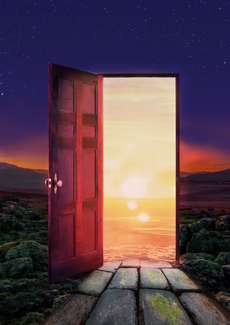Aylin Walder
Depressed Immortals: Immortality and Ecocriticism in Brandon Sanderson's Elantris (2005)
This paper focuses on the topoi of immortality in Brandon Sanderson's Elantris (2005) as a curse with maddening effects enabling an investigation into the human condition in the 21st century, whereby the disconnect to nature in a society marked by exploitative structures and resulting in mental illness is foregrounded. Thus, the immortals' fate becomes a cautionary tale for the effects of a capitalistic way of life against nature.
Before the events in the novel, a process called the Shaod turned mortal humans into Elantrians – divine immortals with the ability to use magical drawings (Aons) to tap into the Dor, a natural energy. Set in Arelon, a feudalistic country with corrupt leadership, the plot of Elantris unfolds ten years after an event called the Reod. Since then, the Shaod turns the mortals into living corpses cursed with endless pain as their bodies are unable to function normally. While being worshipped before, the Elantrians become outcasts enclosed in Elantris, their previous home. Here, the immortals lose hope, surrender to madness, and become static. When Raoden is affected by the Shaod, his drive for a better future is what breathes life into the city as he establishes a purposeful society. While his character enables to ask fundamental questions of the human condition, the paper further looks at the similarities between the symptoms of the immortals and those of depression.
The question of the depressive effect of asociety that has lost its nature-connectedness on the individual comes then into focus when it is revealed that the Reod was triggered by an earthquake that changed the landscape. Insofar as the Aons as well as the structure of Elantris both mirror the landscape of Arelon, the change brought by the earthquake led to the Aoens' and Elantris' structure deviating from nature so that the connection to the Dor became interrupted, which incapacitates the Elantrians to fully transform or use magic. When Raoden modifies the Aoens as well as the city, the transformation completes and magic returns. Thus, the pain of the immortals is related to them not adapting as well as being insensitive to their surroundings as it goes unnoticed that the earthquake altered the landscape. In the end, the cursed and depressed immortals are only healed when reconnecting to nature.
Considering the portrayal of immortals driven insane by their disconnect to their surroundings, a novel, ecocritical reading of a work of fantasy fiction is achieved that enables an investigation of what it means to be human in our contemporary, economically driven society riddled with depression and marked by a loss of communion with nature.
While pursuing her PhD project "Negotiations of Alterity in Contemporary Anglophone Fantasy Fiction", Aylin Walder is currently working at the department of English Studies I at the University of Cologne, Germany. Further, she is part of the editorial team of Anglistik: International Journal of English Studies. Her research primarily focuses on the notion of alterity as well as on adaptation theory and cultural studies with particular regard to written and screened fantasy fiction. Her first paper "Cultural Appropriation of Poland’s Fantasy: The Cold War Saga O Wiedźminie Moving into American Mainstream Culture" is to published in The Palgrave Handbook of Global Fantasy (2023).







